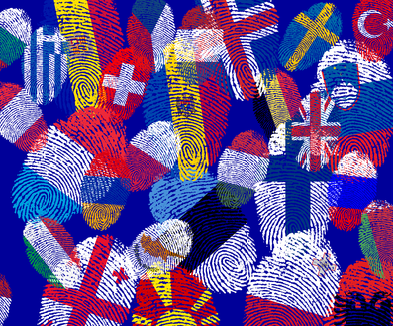Research & Studies

As part of the series “European Year of Cultural Heritage”, the international conference ‘Heritage and identity’ was organised by the Association of Cultural Heritage Managers (KÖME) in collaboration with the Institute of Advanced Studies (iASK) and the local government of Kőszeg between 23-26 March 2018. Lectures, presentations, workshops, tours in Kőszeg and the neighbourhood presented part of the European context for heritage and identity.
At the conference opening, Tibor Navracsics, Commissioner for Education, Culture, Youth and Sport, who launched the European Year of Cultural Heritage, highlighted that the series of events aimed to reformulate European identity not by Brussels and central events but rather by local organisations and initiatives. He said, “The preservation of European cultural heritage enables the identification of ties among European nations.”
Cultural heritage management training has occurred in Kőszeg for more than ten years. Ferenc Miszlivetz, Director of the Institute of Advanced Studies Kőszeg (iASK) emphasized that “The KRAFT Centre (Creative city – Sustainable region) at iASK” engages in research on cultural heritage including the historical development of Kőszeg, the region and the whole of Europe. He added that he hoped the conference marked the beginning of a tradition and that Kőszeg might become a centre for Central-European dialogue.
Nearly 150 cultural heritage professionals from over 30 countries participated in the 3-day international conference.
The opening keynote speech was held by Kenan Malik, neurobiologist, science historian, journalist and author on race, identity policy, and migration ethics.
Professor Laurajane Smith, head of the Centre for Heritage and Museum Studies at the Australian National University and Constanze Itzel, founder of the House of European History in Brussels also held keynote speeches at the conference.
Workshops and tours in Kőszeg and the neighbourhood focused on the way places are related to local communities and identity. Visitors had the chance to attend 20-24 presentations a day in six venues.
Social psychologist György Csepeli, in his analysis on post–World War II European politics, indicated how and why a unique European identity was formed that provided the foundation for the European Union.
Zoltán Mizsei’s presentation entitled ‘The Sounding City Concept in Kőszeg’ described the festival that has been organised in Kőszeg for two years around the music research program conducted at iASK.
Based on his autobiography, James M. Skelly, an Irish-American sociologist, analysed current issues in the interpretation of the “sarcophagus of the self” through heritage and the past. With anecdotes and personal stories, he drew attention to the importance of the changes and discrepancies of self-definition depending on eras and geographical locations.
Historian and iASK research fellow, Mónika Mátay, presented the ‘“Talking Houses” project to the international audience. The urban research project, initiated three years ago, is based on the original idea of Elemér Hankiss. The built, silent witnesses, the buildings of Kőszeg are to be animated to reveal the stories they hide. She maintained that besides the macro approach to history, the micro perspective is worth considering to develop a better understanding of our common past and experiences. Research findings create a novel social history database that has never been catalogued before.
The question of what European identity is needs individual answers. Yet given the 3000 year old historical heritage, this encompasses the acceptance and tolerance-based approach of free and diverse societies with roots in Greek culture, Roman law, Abrahamic religions, moral principles, and the Enlightenment.
© 2017-2023, All Rights Reserved